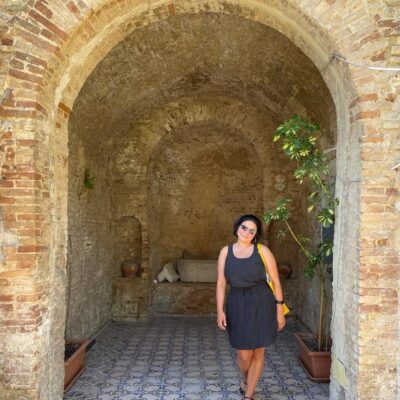Helen Pinto - Arts and Politics
In Fall 2021, Helen moved to Berlin, Germany, to start a Master’s Degree in American Studies at Humboldt University of Berlin. She finds herself relating to W.E.B Du Bois and his time in Berlin when he wrote: “It is a peculiar sensation, this double-consciousness, this sense of always looking at one’s self through the eyes of others.” Helen hopes to return to the U.S. following her studies at Humboldt to help bring arts and cultural matters to West Wing affairs. In the meantime, she plans to expand her knowledge of art curation, writing about contemporary art and the effect of migration patterns on national identities.
Area of Concentration Courses
Legal Studies 182 - Law, Politics, and Society
American Studies C111E - The Wall: Art, Literature, Performance on and about the U.S.-Mexican Border
History of Art 190F - Visual Activism
Public Policy 157 - Arts and Cultural Policy
History of Art 100 - Theories and Methods
Thesis
Moving Forward: Lessons Learned from United States Arts Policy from 1793 to 2021
Helen’s honors thesis investigates the history of art and cultural policy in the United States and explores cases that paint a picture of the issues that impact the public’s engagement with federally sponsored works of art in terms of policy, design, funding, and execution. Helen argues that the federal government must promote what American educator and philosopher John Dewey referred to as “aesthetic experiences.” Helen’s research starts at the U.S. Capitol, where art policy and public art in the U.S. were born. She then goes on to explore the purpose of art created as part of the New Deal, the creation of the National Endowment of the Arts, local arts commissions at the city level, how tax codes dictate the art that Americans have access to, and finally Bill Ivey’s proposition for a Cultural Bill of Rights. This research questions: [1] what lessons are to be learned from United States art policy; [2] who are the decision-makers of these policies/who do they represent; and [3] what tools can be wielded so that citizens may have what arts policy scholar Michael O’Hare calls “more, better engagement” with art?
